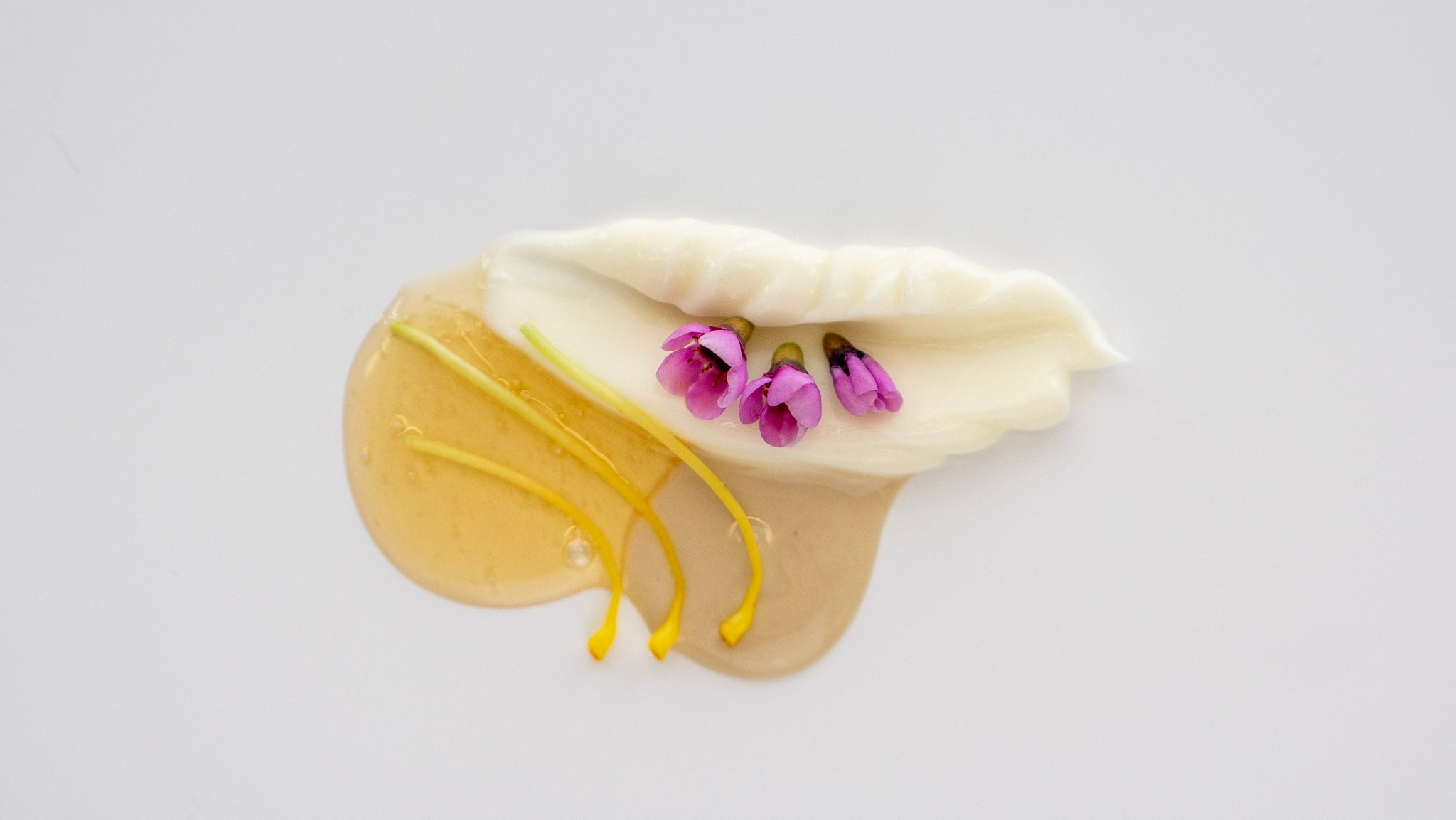While the healing and skincare benefits of honey have been known for thousands of years, researchers have only recently begun to uncover its full potential.
Studies have found that honey and the lesser-known honey product propolis are a treasure trove of nutrients and medicinal compounds, capable of everything from reducing the appearance of wrinkles to treating acne and psoriasis.
Read on to see why should make the switch to sweeter skincare.
Honey – the golden standard
Honey in skincare isn’t a recent phenomenon. It has been used to treat skin conditions and injuries since the days of Ancient Egypt.
So why is honey so good for your skin?
Aside from its natural cosmetic qualities as a moisturiser and exfoliant, honey is infused with the botanical properties of the flora it’s made from.
Honey from the right plants can be packed with potent antioxidants and antimicrobial compounds. For example, the unique jarrah honey in our Gentle Honey Cleanser/Beeautify skincare range has among the highest levels of antioxidants and antimicrobial activity in the world.
When you combine the power of native botanicals with naturally cleansing honey, you get a versatile and effective skincare solution.
Benefits of honey in skincare
- Honey is a natural exfoliator and humectant, keeping your skin looking plump, fresh and hydrated.
- The antimicrobial, antiseptic, and antibacterial properties of honey ensure your skin and pores are free of dirt, blackheads, excess oil and acne-causing bacteria.
- High levels of antioxidants protect your skin from free-radical damage, reduce the appearance of wrinkles and scarring, and boost collagen production.
- Honey heals wounds, reduces inflammation and helps treat skin conditions such as eczema and psoriasis.
If you’re looking for natural skincare that works, honey-based cosmetics could well be the answer.
Propolis – the new sweetness
Propolis is a natural compound bees use to protect and reinforce their hives, and its cosmetic potential has the skincare community abuzz.
Honeybees create propolis by mixing beeswax with plant resin, forming a sticky substance that acts as glue, insulation and even as a defence against pathogens.
Although it has only recently entered the spotlight, propolis has been used in traditional medicine for centuries. It’s well known for its healing, anti-inflammatory and antimicrobial properties.
As a skincare product, it’s even more impressive. Propolis has a host of cosmetic benefits, ranging from reducing the appearance of wrinkles to treating acne.
Propolis skin benefits
- A natural moisturiser with anti-ageing properties, propolis helps smooth out wrinkles and keeps your skin looking supple.
- It’s high in antioxidants, protecting your skin from free-radicals and sun damage.
- Propolis is antimicrobial and anti-inflammatory, protecting your skin from acne-causing bacteria and soothing any inflammation.
- It stimulates cellular regeneration, heals wounds and reduces scarring.
Propolis will protect and rejuvenate your skin while keeping it looking younger and blemish-free.
Click here to shop our natural Honey and Propolis Skincare Range
References
Anna Kurek-Górecka, Michał Górecki, Anna Rzepecka-Stojk, Radosław Balwierz and Jerzy Stojko, ‘Bee products in dermatology and skin care’, accessed November 2022. https://www.ncbi.nlm.nih.gov/pmc/articles/PMC7036894/
Izabela Przybylek and Tomasz M. Karpiński, ‘Antibacterial properties of propolis’, accessed November 2022. https://www.mdpi.com/1420-3049/24/11/2047/htm
Manisha Deb Mandal and Shyamapada Mandal, ‘Honey: its medicinal property and antibacterial activity’, accessed November 2022. https://www.ncbi.nlm.nih.gov/pmc/articles/PMC3609166/
Nelly Rivera-Yañez, C. Rebeca Rivera-Yañez, Glustein Pozo-Molina et al, ‘Effects of propolis on infectious diseases of medical relevance’, accessed November 2022. https://www.ncbi.nlm.nih.gov/pmc/articles/PMC8151468/
Saeed Samarghandian, Tahereh Farkhondeh, and Fariborz Samini, ‘Honey and health: a review of recent clinical research’, accessed November 2022. https://www.ncbi.nlm.nih.gov/pmc/articles/PMC5424551/
Sarfraz Ahmed, Siti Amrah Sulaiman, Atif Amin Baig et al, ‘Honey as a potential natural antioxidant medicine: an insight into its molecular mechanisms of action’, accessed November 2022. https://www.ncbi.nlm.nih.gov/pmc/articles/PMC5822819/
Tahereh Eteraf-Oskouei and Moslem Najafi, ‘Traditional and modern uses of honey in human diseases: a review’, accessed November 2022. https://www.ncbi.nlm.nih.gov/pmc/articles/PMC3758027/
Visweswara Rao Pasupuleti, Lakhsmi Sammugam, Nagesvari Ramesh and Siew Hua Gan, ‘Honey, propolis and royal jelly: a comprehensive review of their biological actions and health benefits’, accessed November 2022. https://www.ncbi.nlm.nih.gov/pmc/articles/PMC5549483/
Wojciech Król, Vassya Bankova, José Maurício Sforcin et al, ‘Propolis: properties application, and its potential’, accessed November 2022. https://www.ncbi.nlm.nih.gov/pmc/articles/PMC3753737/
Yazan Ranneh, Abdah Md Akim, Hasiah Ab. Hamid et al, ‘Honey and its nutritional and anti-inflammatory value’, accessed November 2022. https://www.ncbi.nlm.nih.gov/pmc/articles/PMC7807510/






